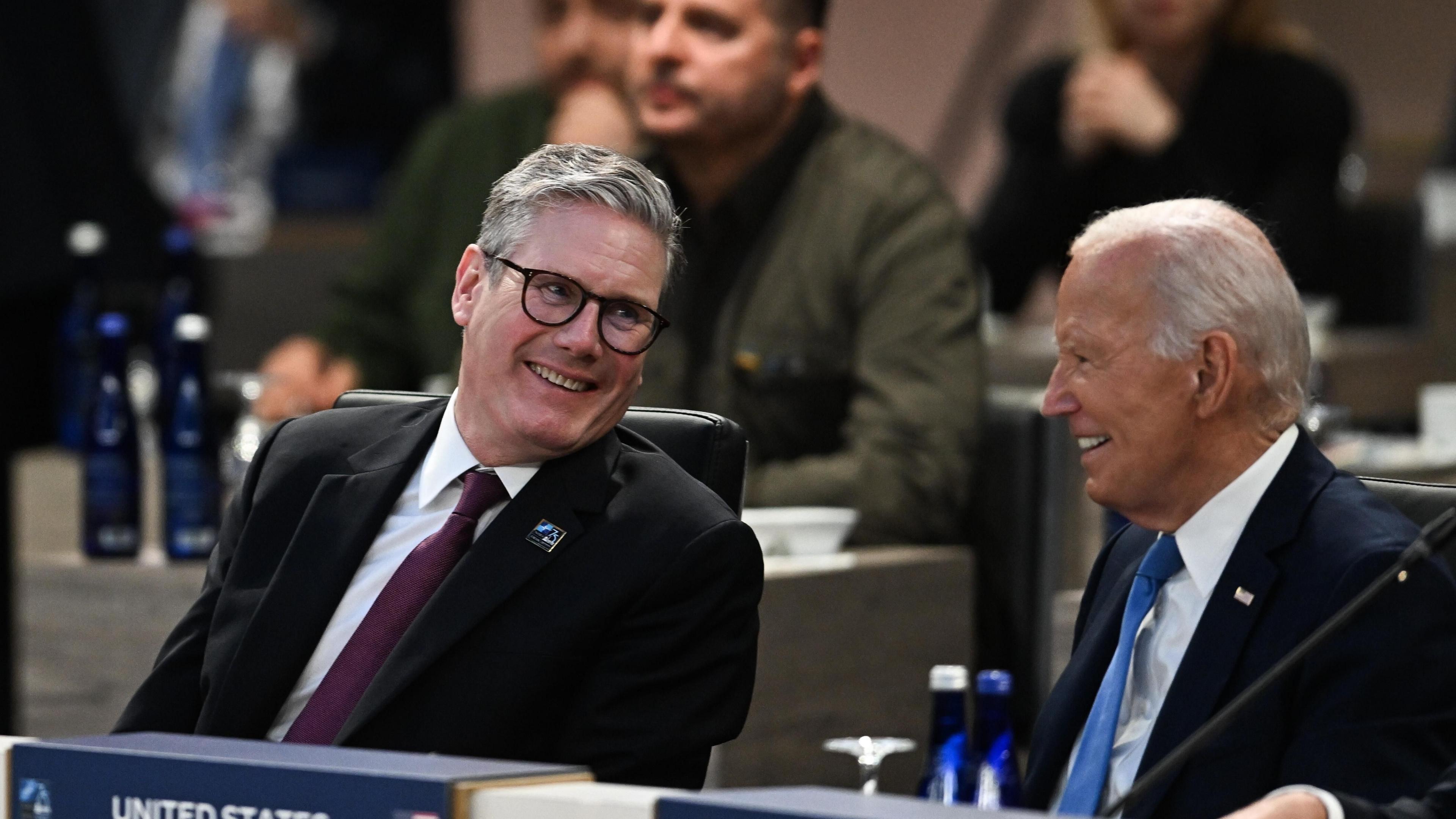UK readies for new US presidential race

- Published
“I thought, blimey. It turns out you don’t need to be one of Donald Trump’s megafans to think it.”
It was the best part of a couple of years ago, and a senior government figure was confiding in me about listening in on a call between the then prime minister and President Biden.
“All this stuff about the president being too old said by the Trump lot. I never really believed it, but then I heard him," this person said.
"He was really struggling. His mind drifting. He would have moments where he was lucid, but then things would drift off.”
A year ago, I was in the Oval Office of the White House, and I would get to witness it first hand myself.
The president and a prime minister half his age, Mr Sunak, sat yards away from each other and from us.
President Biden was barely audible and mumbling - and managed to call Rishi Sunak “Mr President.”
And yet an hour or so later, the president appeared in command at a lengthy news conference.
But in recent weeks, things seem to have deteriorated.
There was the disastrous presidential debate for Joe Biden against Mr Trump.
And then that excruciating moment at the Nato summit in Washington.
Every day in politics, people claim there has been some deeply awkward, embarrassing moment for this politician or another. Most are mildly blush inducing - and almost certainly instantly forgettable.
But not this one.
We had just witnessed a jaw dropper, as President Biden managed to introduce President Zelensky of Ukraine, standing next to him, as President Putin.
“That was quite a thing, wasn’t it?” a different senior UK government figure said to me, with a knowing look. “That’ll be consequential, without question.”
It would be mortifying for anyone at any time, but its political danger for President Biden was obvious to us all because it appeared to illustrate a charge he was now finding impossible to escape: that he was simply too old to stand for re-election.
It was a theme that had dominated Sir Keir Starmer’s first trip to America as prime minister.
I asked him about that moment just after it happened, and had asked him whether the president was senile the day before.
I didn’t use that word lightly.
It was what an increasing number of people were implying publicly and many had said privately for some time, and the new prime minister was a character witness.
OK, but what was he likely to say on camera about the man in the Oval Office, you might reasonably ask.
Fair point, but it is my job to ask nonetheless – and to pose those difficult, blunt questions.
They mattered because they relate to the sitting president of the United States.
Today, the prime minister paid tribute to President Biden, saying how defence and security has been “central” to his leadership, including by leading “us through the Nato council just 10 days or so ago”, which the PM described as a “really important Nato summit”.
And Sir Keir said he looked forward to “working with him [President Biden] for the remainder of his presidency".
There'll be plenty for the two men to discuss and decide in the coming months.
But the race between Donald Trump and the - as yet unconfirmed - Democrat candidate will be occupying the minds of Westminster strategists and planners now, as they assess what shape the so-called special relationship will take in 2025.
The nub of it is - the new UK government now knows it will be dealing with a new administration in Washington within six months, whatever happens.